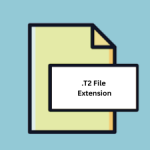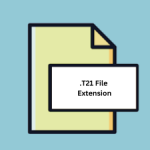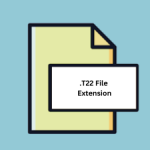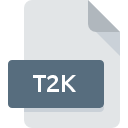.DET File Extension
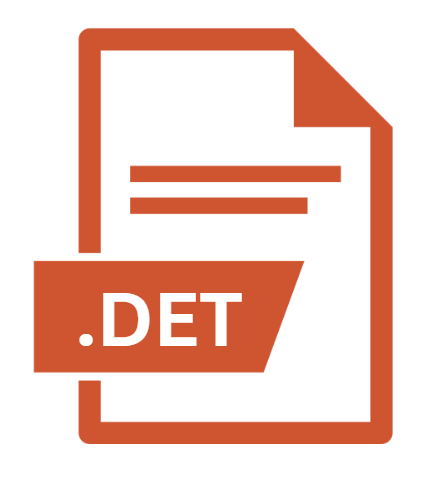
Sage ACT! 5 Email Message
| Developer | The Sage Group |
| Popularity | |
| Category | Data Files |
| Format | .DET |
| Cross Platform | Update Soon |
What is an DET file?
In the realm of digital data, file extensions play a crucial role in determining how information is stored and accessed. Among these extensions is the .DET file extension, primarily associated with Sage ACT! 5 Email Message.
Sage ACT! is a widely used customer relationship management (CRM) software designed to help businesses manage their interactions with current and potential customers.
The .DET file extension specifically relates to email messages within the Sage ACT! 5 software, serving as containers for crucial communication data.
More Information.
The history of the .DET file extension aligns closely with the evolution of Sage ACT! software. Initially launched in the late 1980s, ACT! (previously known as Contact Software International) gained prominence as one of the pioneering CRM solutions for small and medium-sized businesses.
With subsequent versions released over the years, each iteration brought enhancements and new features to improve user experience and meet changing business requirements.
The .DET file extension was introduced as part of Sage ACT! 5, a significant milestone in the software’s evolution. This version incorporated various updates, including improvements to email integration capabilities.
The primary purpose of .DET files were to store email messages exchanged within the Sage ACT! environment, enabling users to maintain a centralized repository of communication history alongside other CRM data.
Origin Of This File.
The origin of the .DET file extension can be traced back to the development of Sage ACT! software, which has a long-standing presence in the CRM market.
As businesses increasingly relied on digital communication channels, the need for a comprehensive solution to manage customer interactions emerged.
Sage ACT! was developed to address this need, offering features tailored to organizing contacts, scheduling activities, and tracking communication history.
The .DET file extension was introduced as part of this ecosystem to facilitate the storage and retrieval of email messages within the software environment.
File Structure Technical Specification.
The .DET file extension is associated with a specific file format tailored to accommodate email messages within Sage ACT! 5.
While the exact structure may vary based on factors such as email content and metadata, a typical .DET file consists of various sections to store essential information. These sections may include:
- Message Content: This segment contains the actual text or HTML content of the email message, along with any attachments associated with it.
- Metadata: Information such as sender, recipient, date/time stamps, and subject line is stored in this section to provide context and facilitate search and retrieval.
- Attachments: If the email includes any attachments, they are typically stored within the .DET file or linked to external locations for accessibility.
- Header Information: This portion may contain header data necessary for the proper interpretation and processing of the email message within the Sage ACT! environment.
The technical specifications governing .DET files are primarily dictated by the Sage ACT! software and its underlying architecture. As proprietary files associated with a specific application, detailed specifications may not be readily available to the public.
How to Convert the File?
Converting .DET files to other formats may be necessary to facilitate compatibility or archival purposes. While direct conversion tools for .DET files may not be readily available due to their proprietary nature, alternative approaches can be explored:
- Export Functionality: Sage ACT! software may offer built-in export functionality to extract email messages in standard formats such as EML or PST, which can be further converted using third-party tools or email clients.
- Data Migration Services: Third-party data migration services specializing in CRM platforms may assist in transferring email data from Sage ACT! to alternative systems while preserving integrity and formatting.
Advantages And Disadvantages.
Advantages:
- Centralized Storage: .DET files enable users to consolidate email communication within the Sage ACT! environment, providing a centralized repository for easy access and reference.
- Integration: Seamless integration with Sage ACT! allows users to link email messages with relevant contacts, activities, and opportunities, enhancing overall CRM functionality.
- Search and Retrieval: The structured nature of .DET files facilitate efficient search and retrieval of email messages based on various criteria, improving productivity and information management.
Disadvantages:
- Platform Dependency: .DET files are specific to Sage ACT! software, limiting interoperability with other email clients or CRM solutions.
- Complexity: Managing .DET files and extracting data from them may require familiarity with Sage ACT! software, potentially posing challenges for new users or those transitioning to different platforms.
- File Size: Large volumes of email communication may result in sizable .DET files, potentially impacting system performance and storage requirements.
How to Open DET?
Open In Windows
- Sage ACT! Software: Install and launch Sage ACT! on a Windows-based system. Navigate to the email module within the software to access and view .DET files seamlessly.
- Third-Party Software: Explore third-party solutions or plugins compatible with Windows that claim to support .DET file viewing. However, exercise caution and ensure the software’s credibility and compatibility before use.
Open In Linux
- Compatibility Tools: Since Sage ACT! does not have native support for Linux, consider using compatibility tools such as Wine or CrossOver to run Windows applications on Linux. Install and configure these tools, then attempt to run Sage ACT! to access .DET files.
- Virtualization: Set up a virtual machine running Windows within your Linux environment using virtualization software like VirtualBox or VMware. Install Sage ACT! within the virtual machine and access .DET files as you would on a Windows system.
Open In MAC
- Virtualization or Emulation: Similar to Linux, macOS users can utilize virtualization or emulation software like Parallels Desktop, VMware Fusion, or CrossOver to run Windows applications. Install Sage ACT! within the virtualized environment to access .DET files.
- Remote Desktop Services: If Sage ACT! is installed on a Windows-based machine accessible over the network, use remote desktop services like Microsoft Remote Desktop or VNC Viewer to connect from your macOS device and access .DET files remotely.
Open In Android
- Remote Access: Since Sage ACT! is not available for Android, users can access .DET files stored on a Windows-based machine via remote access solutions like Remote Desktop apps available on the Google Play Store. Connect to the Windows system remotely and use Sage ACT! to open .DET files.
Open In IOS
- Remote Access: Similar to Android, iOS users can access .DET files stored on a Windows-based machine through remote access applications available on the App Store, such as Microsoft Remote Desktop. Connect remotely to the Windows system and use Sage ACT! to open .DET files.
